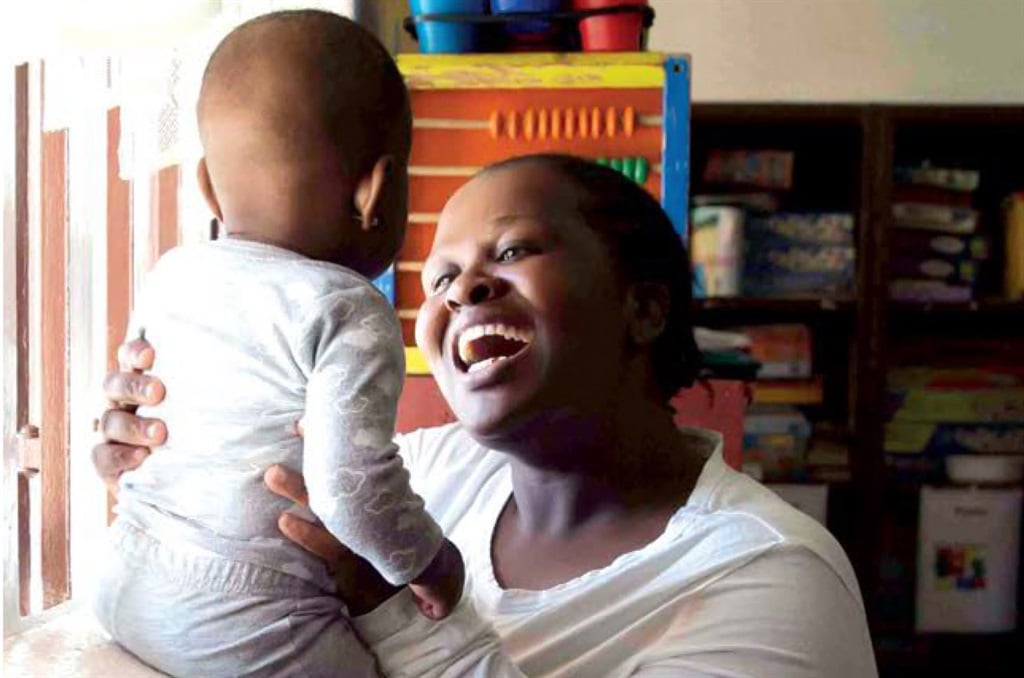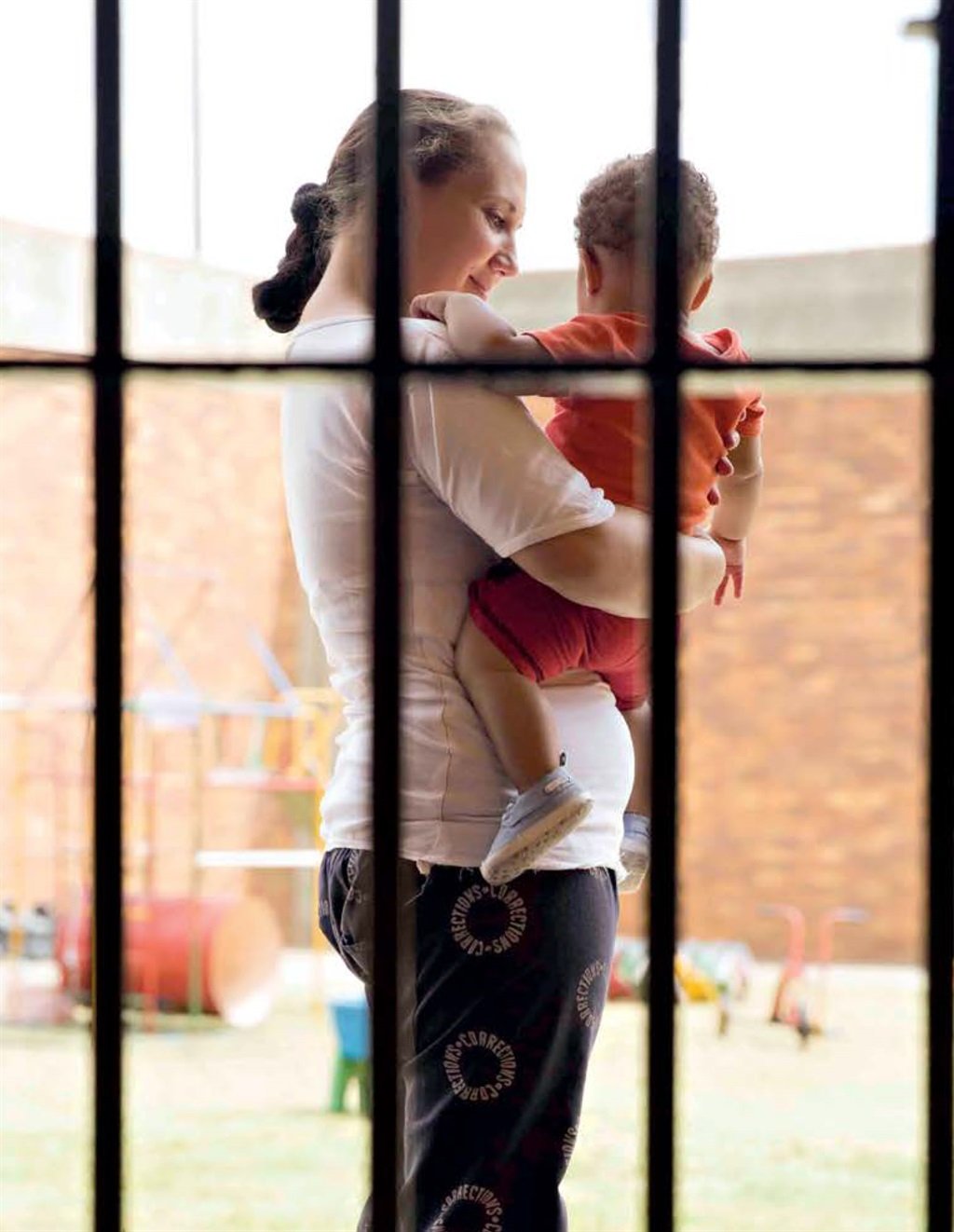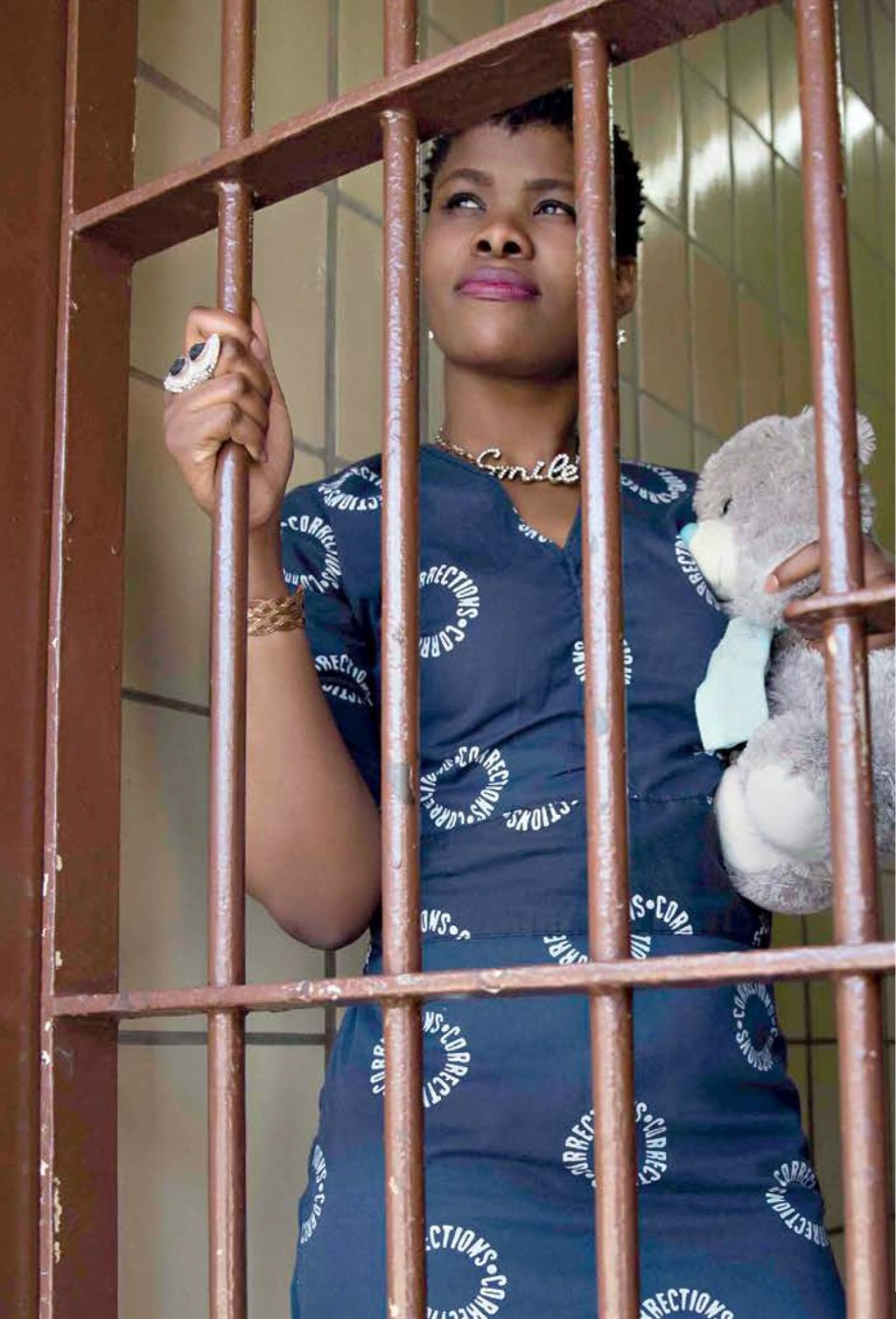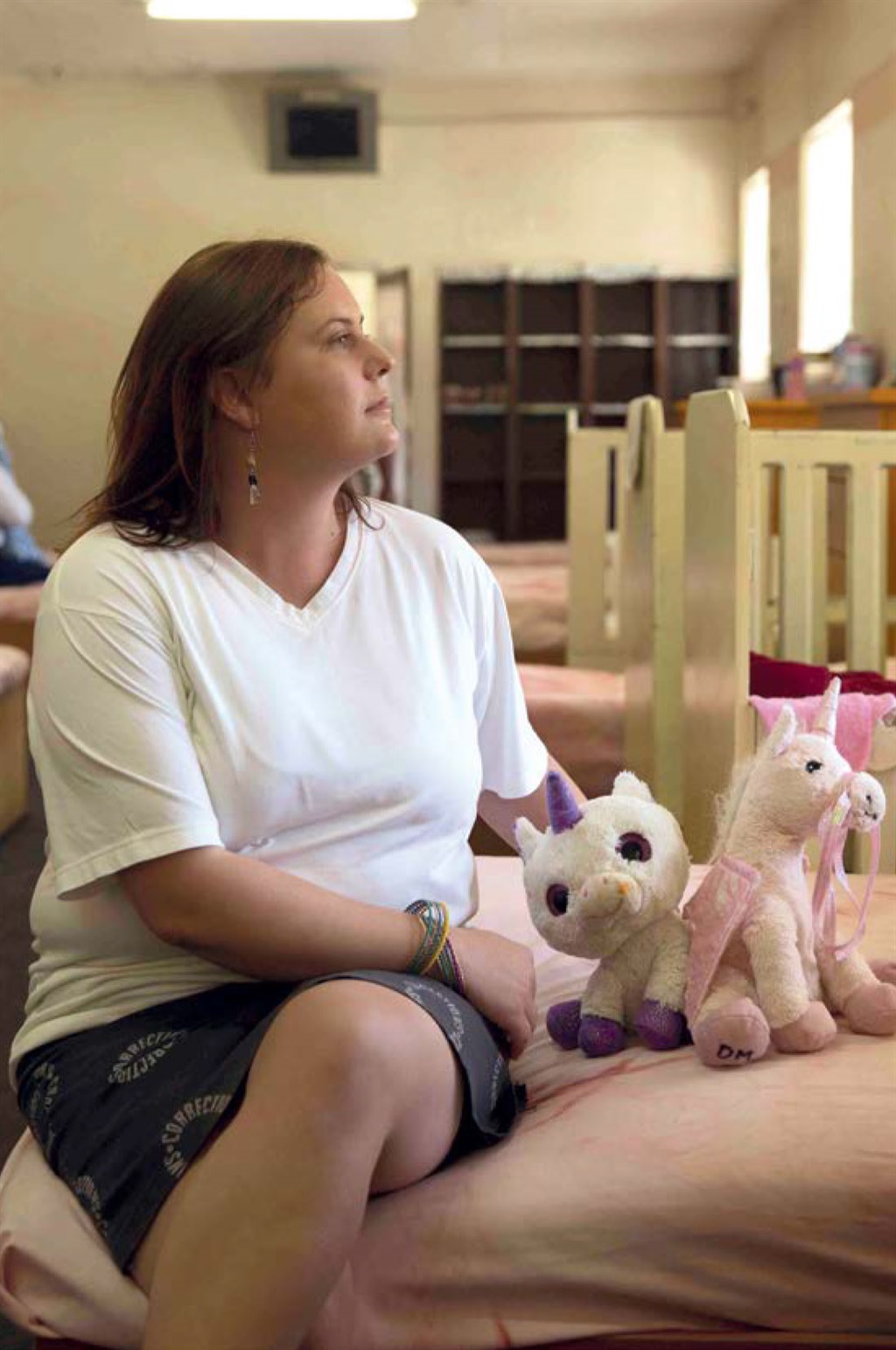
The world of make-believe usually paints a very gloomy picture of correctional centres. Visiting the Johannesburg Female Correctional Centre to spend a day with some of the women who aren’t only serving time, but are also raising their babies inside prison, was an eye-opener.
As you walk in, you’re welcomed by a view of women, clad in their stylishly designed prison uniform, chatting away, cleaning and some at the in-house salon. The rest remain behind the solid doors.
The setup can be a tad intimidating at first, but that isn’t the case at the section reserved for mothers and babies. Even though the walls are brightly-painted and the babies make their warm presence felt, the bars and high walls are a clear reminder that this is no ordinary nursery.
READ MORE | 8 celeb moms on what motherhood has taught them
Bianka Hartmann
Sentenced to three years
“I found out I was pregnant while in custody — I’d been on trial for three months. At the time, I was five weeks pregnant but had no idea. Learning that I was expecting just made things worse. I definitely wasn’t looking forward to being a mom at that point in my life. It felt that the pregnancy was adding to my already long list of problems.
“I was arrested in East London, far away from my family. I spent eight months there before being transferred to the Johannesburg centre when my baby was three weeks old. Prison is hard. I have two kids who live with my mom — the eldest knows I’m in prison but my five-year-old thinks I’m in hospital.
“I have vowed to tell them the truth when they’re older. I’m grateful for the time I’ve spent with my son in here. Had he been taken away at birth, it would have broken me. But of all my kids, I have the strongest bond with him. Taking care of him makes my days here easier and bearable because they can get quite long.
“I initially had fears about bringing up a baby in prison but had no idea that there was a special section for mothers and babies. I’m fortunate in that, my sentence is structured in such a way that I get to leave with him when I’ve served my time.
“I hope to be a better example to all my children — they need to know that there’s no winning where crime is concerned. Playing on the wrong side of the law and being pompous enough to think that you’ll never get caught is dangerous.
“The biggest punishment for me has been being away from my family and kids. I will never consider doing anything fraudulent ever again — that’s what I was arrested for. In fact, I’ll never commit any crime ever again. I’ve missed enough by being away. I wish I could make up for the time but I know I can’t. Getting out of here will be a second chance for me to be a more present mother to my other two children.”
Tumi Keitumetse
Sentenced to 10 years
“I wish I’d known better than to stay in an abusive relationship because that’s why I’m here. Women should never stay for the children’s sake or out of fear of being alone. Leave, love yourself, and if you’re able-bodied, you can definitely make it without him.
“I found out I was pregnant while on trial. At the time, my plan was to give birth and hand my son over to my mother to raise. I’m glad I kept him because it afforded us the chance to bond — he now knows that I’m his mother.
“Raising a child in prison was hard because things like toys and time are limited. I gave him all I could, like teaching him about the word of God. We also used to pray together. I initially didn’t get what my mom meant when she said that keeping my son was a big decision but now I do.
“My child is a blessing. But, this is no place to raise a child, which is why I asked my mom to fetch him when he was a year and a half. Letting him go was, as you can imagine, very difficult. He’d become my comforter and best friend. I’d talk to him, even though he couldn’t speak back. I felt terrible for having raised him in a confined space because every mom wants the best for their child.
“There’d be times when he’d want to play but couldn’t because the playground would be locked — that shattered my heart. I decided it was selfish of me to keep him behind bars because he hadn’t committed any crime. I’ve since had to adjust to living in the communal cells without him.
“I’m here, righting my wrongs so I can be a better mom when I get out. I now pour out my feelings on paper each time I feel lonely. I’m hoping to, someday, compile all these thoughts into a book.”
Annah Phume
Sentenced to 15 years
“My first day in prison was a hard pill to swallow. I was nine months pregnant and naturally, worried about my baby’s safety. I still haven’t fully accepted that this is my life, but I’m slowly coming to terms with my new surroundings.
“Being a mother is a blessing, but not in here. Allah created everything to be beautiful, but prison makes you doubt that beauty. Raising a baby behind bars is tough. There are some things that the baby needs that aren’t easily available.
“What helps me cope is my strong belief that Allah has a solid reason and plan for placing me in here – I honestly don’t know where I’d be without my faith. Imagining the day when my daughter has to leave breaks my heart. She’s the reason I’ve survived this limiting environment. Our routine keeps me sane and makes the days go by quicker.
“I have two sons back home, but they don’t know of my whereabouts. They probably think that I’m out there somewhere, making a living for them. My sister, who is currently their guardian, wants to bring them for a visit but I keep refusing. I’m not ready to face, nor see them.
“My second son is disabled, so I know I’ll definitely bawl when I see him. Don’t get me wrong, I’m grateful for my family’s support but I don’t want my children to see me at my lowest. I already feel like I’ve let my family down and don’t want to feel any worse than I do by having my kids ask me questions I’m not ready to answer.
“I’d turn back the hands of time, if I could — make sound decisions and prioritise my childens’ happiness. From the confines of this place, I can only wish for them to be educated, successful and go on to achieve great things. I wouldn’t wish prison on anyone.”
READ MORE | Carol Ofori and other celebs who have authored children’s books
Shantel Venter
Sentenced to 24 years
“I was sentenced in August 2014. Drugs got me here and I’m only eligible for parole after 12 years. I have two daughters and one son.
“I got arrested when I was two months pregnant with my last daughter. I felt like a such failure – I let down my family, kids and myself by being here. Before being sentenced, you don’t want to accept responsibility and continue playing the innocence card. Reality only hit when my child went home, and my mother and sister passed away while I was in here. That was hard to deal with and I only have myself to blame for all that I’ve lost.
“My children know that I’m behind bars and that my wrongdoing landed me here. However, I haven’t explained the full details as yet. My family is supportive and has forgiven me. Although my sister and kids visit every second weekend, we’re no longer as close because, really, how much can you discuss in an hour?
“I used to jot down questions to ask them during visiting hours but it’s just not enough — I don’t know much about what goes on in their lives. Missing out on countless opportunities to create precious moments with loved ones is the most excruciating part of being incarcerated.”
Why do the babies leave at two years old?
Children used to stay until age four. But, we realised that kids pick up on the environment and language used in here or remember some of the things that happened when they’re older. We don’t want them to be too familiar with the environment, or for them to acclimatise until they know what prison is. The age of two is ideal because once they leave, the child can relearn and forget.
What happens to the child once they leave?
We involve our social workers to ensure that the mother is emotionally equipped for the transition. The social development department assists us with making sure the child will be raised in a good environment by a trusted family member.
In cases where the offender is a foreigner or doesn’t have relatives, we then look for a foster family for the child. The department and social workers begin the process as early as possible and involve the mother in it. We conduct thorough background checks and interviews with the prospective foster parents.
The mother gets an opportunity to interact with them so she can be assured that her child will be in good hands.
Who provides the babies’ supplies?
We try to make the environment conducive for the babies and as practical as possible because they didn’t commit the crimes. Where we fall short, we involve the social and education departments, and secure sponsorships. But we provide the mothers with basics like formula, nappies and minimum standard clothing. We also make sure the cells have a fridge and microwave for keeping and warming baby food.
Who pays for the crèche?
The crèche is run in partnership with the social development department. They employ the staff and make sure they’re fully equipped to take care of the kids. We try to stimulate early childhood development and make sure they reach all baby milestones. When the mothers are busy with rehabilitation, together with the social workers, we keep the babies busy.
Don't miss our top stories, sign up to the TRUELOVE newsletter now!















